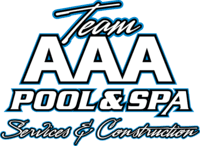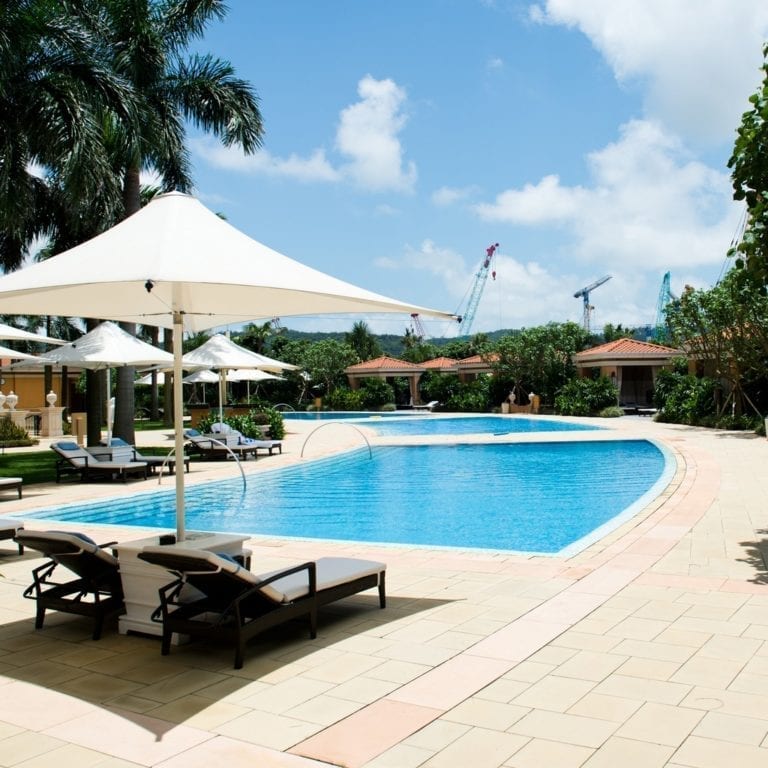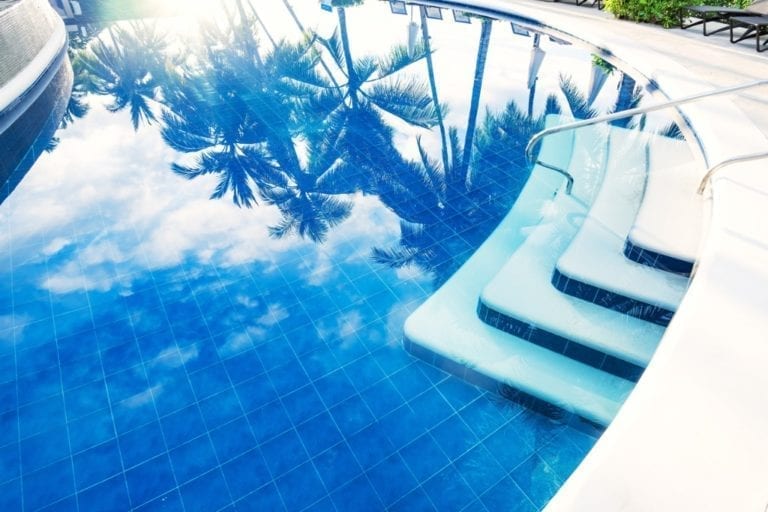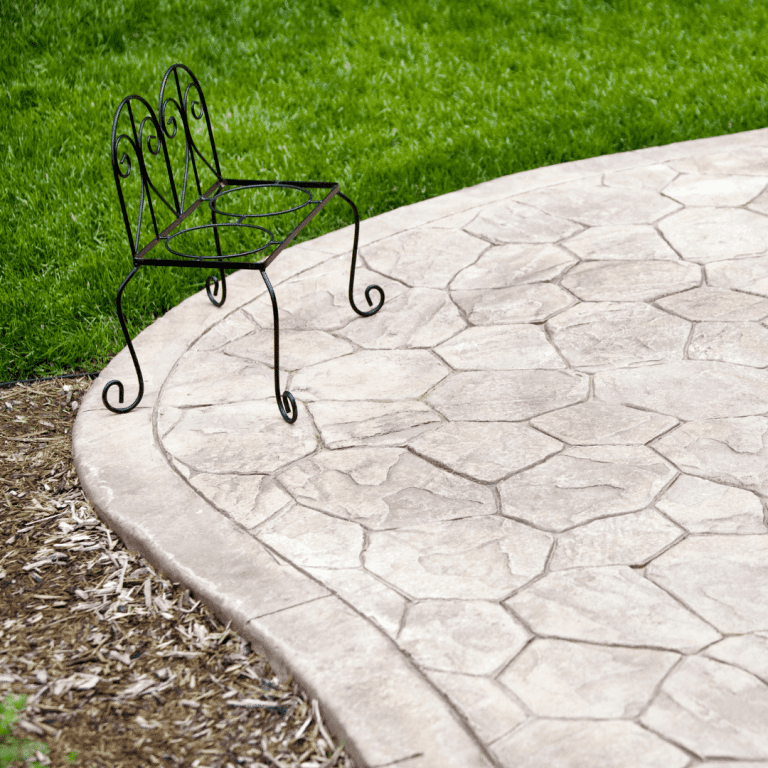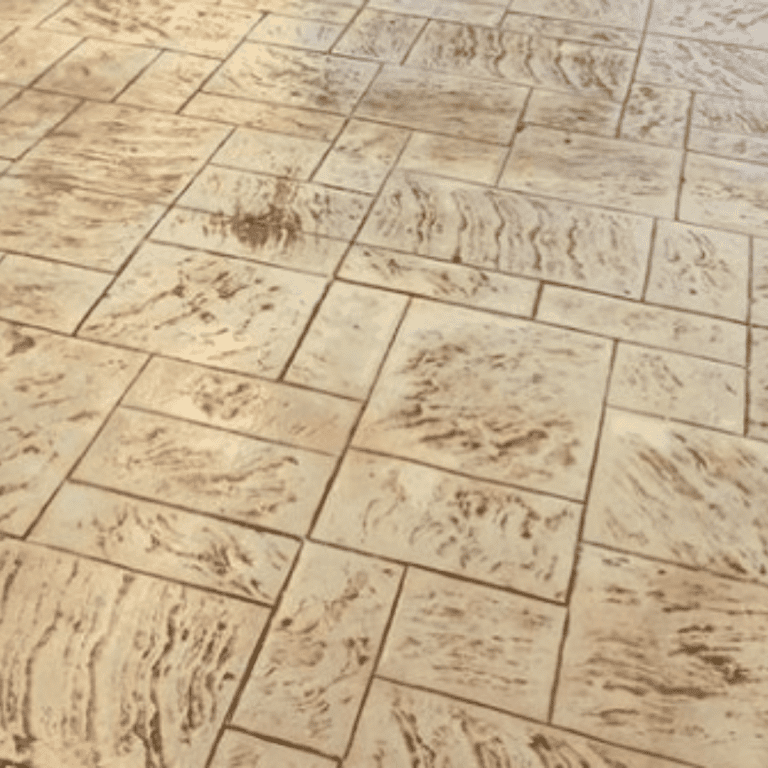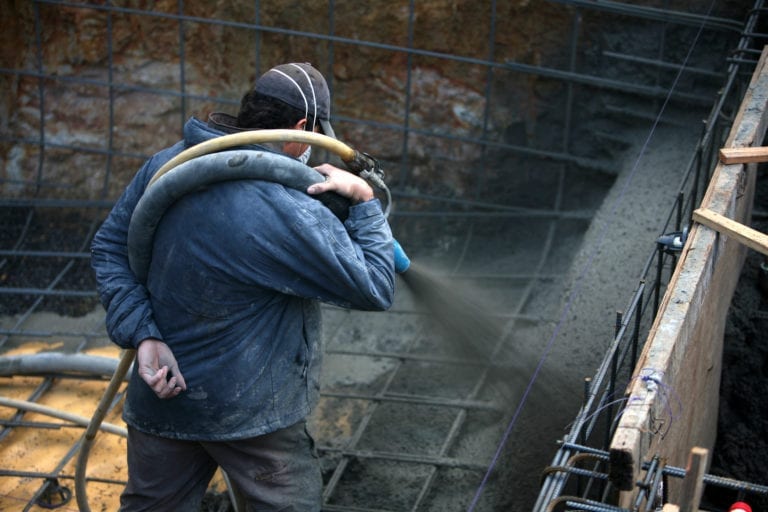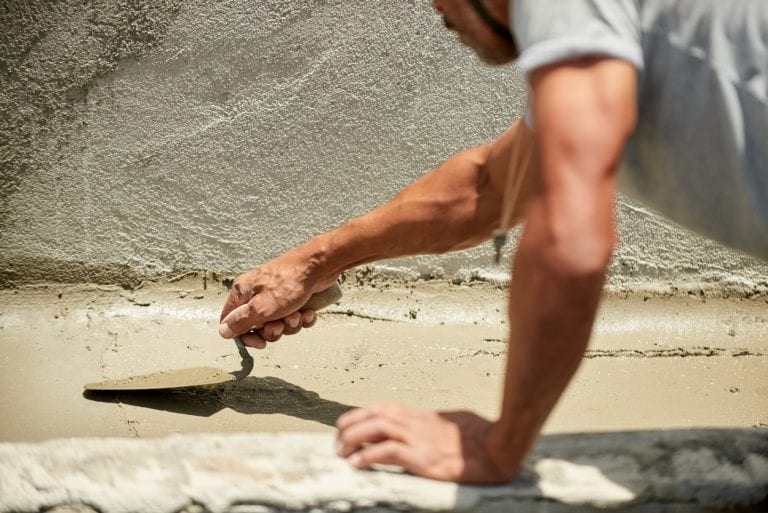In the operation of a commercial pool, ensuring the health and safety of pool patrons is of utmost importance. This is where the commercial pool health department comes in. They are responsible for establishing and enforcing pool health regulations and safety guidelines to maintain a clean and secure pool environment.
Key Takeaways:
- The commercial pool health department plays a crucial role in ensuring the safety, cleanliness, and compliance of commercial pools.
- They conduct routine inspections and address complaints to ensure that pool facilities meet the required standards.
- Commercial pools must adhere to specific regulations set by the health department, such as compliance with the California Health & Safety Code.
- Inspectors from the health department perform regular inspections of commercial pools to ensure compliance with regulations.
- Pool owners and operators have a responsibility to maintain the cleanliness and safety of their commercial pools.

Responsibilities of the Commercial Pool Health Department
The health department plays a critical role in ensuring the health and safety of commercial pools. Their responsibilities encompass various aspects of pool maintenance, sanitation, and compliance with regulations. Let’s explore the key responsibilities of the health department in further detail:
Inspections and Evaluations
A primary responsibility of the health department is to conduct routine inspections of commercial pools. These inspections involve evaluating the visual quality of the water, the cleanliness of pool surfaces, and the functionality of the recirculation and purification systems. The health department also assesses the maintenance of related pool facilities, such as restrooms, locker rooms, and equipment rooms, to ensure overall hygiene.
Water Quality Standards
The health department sets and enforces strict water quality standards for commercial pools. This includes monitoring and evaluating parameters such as pH levels, chlorine residual, alkalinity, cyanuric acid levels, total dissolved solids, and calcium hardness. By ensuring that these standards are met, the health department helps to maintain safe and healthy swimming conditions for pool patrons.
Certification of Pool Service Technicians
In addition to inspections and water quality assessments, the health department also plays a significant role in certifying swimming pool service technicians. These technicians are responsible for servicing both public and private pools. By certifying technicians, the health department ensures that pool maintenance and repair work is carried out by trained professionals who meet established industry standards.
| Responsibilities of the Health Department | Details |
|---|---|
| Inspections and Evaluations | Routine inspections of water quality, pool surfaces, and related facilities. |
| Water Quality Standards | Monitoring and evaluating parameters such as pH, chlorine residual, and alkalinity. |
| Certification of Pool Service Technicians | Ensuring technicians meet industry standards for pool maintenance and repair. |
Regulatory Compliance for Commercial Pools
When it comes to operating a commercial pool, it’s essential to understand and comply with the regulations set by the health department. These regulations ensure the safety and well-being of pool patrons, as well as the proper maintenance of the pool facility. By following these guidelines, pool owners and operators can provide a clean and enjoyable swimming experience for their customers.
The health department enforces specific regulations that commercial pools must adhere to. These regulations encompass various aspects of pool operation, including safety, sanitation, and operational standards. They are designed to minimize the risk of accidents, protect public health, and maintain the overall quality of the pool facility.
Commercial pools in the United States, particularly in California, must comply with the California Health & Safety Code, California Code of Regulations, and California Building Code. The health department conducts plan reviews for new pool constructions and renovations to ensure that they meet the required standards. They also conduct routine inspections to verify ongoing compliance with the regulations.
| Regulation | Description |
|---|---|
| Pool Safety Standards | These regulations include requirements for proper fencing, signage, emergency equipment, and lifeguard presence, if applicable. |
| Water Quality Standards | These regulations specify the acceptable levels of pH, chlorine residual, alkalinity, and other water chemistry parameters to maintain safe and clean pool water. |
| Sanitary Requirements | These regulations cover the maintenance and cleanliness of pool surfaces, restrooms, locker rooms, and other facilities associated with the pool. |
| Operational Guidelines | These guidelines outline the proper operation and maintenance protocols for pool equipment, including recirculation and purification systems. |
By adhering to these regulations and guidelines, commercial pool owners and operators can ensure the health and safety of their patrons. It is crucial to stay informed about any updates or changes to the regulations and implement necessary measures to maintain compliance. Additionally, regular communication and collaboration with the health department can help address any concerns or issues promptly, ensuring the ongoing success of your commercial pool.
Commercial Pool Inspections and Testing
Inspections and testing are critical aspects of maintaining the cleanliness and safety of commercial pools. The health department, responsible for ensuring compliance with regulations, conducts regular inspections to evaluate various aspects of pool maintenance and operation.
Maintenance Protocols
When conducting inspections, health department inspectors assess the adherence to pool maintenance protocols. These protocols include routine cleaning of pool surfaces, maintaining proper water chemistry, and ensuring the functionality of pool equipment. Regular pool maintenance helps prevent the buildup of bacteria, algae, and other contaminants that can compromise water quality and the overall safety of the pool environment.
Pool Safety Guidelines
Another crucial aspect of inspections is evaluating compliance with pool safety guidelines. Inspectors assess the presence and functionality of safety equipment, such as properly secured pool covers and correctly positioned safety signs. They also inspect the pool area to ensure there are no hazards that could pose a risk to swimmers, such as broken tiles, sharp edges, or slippery surfaces. Following pool safety guidelines is essential for providing a secure and enjoyable experience for pool patrons.
Inspection Checklist
The health department follows a comprehensive inspection checklist when evaluating commercial pools. This checklist covers various areas, including water quality parameters, pool equipment, maintenance protocols, and the overall cleanliness of the pool facility. Inspectors may also conduct additional tests for factors like cyanuric acid levels, total dissolved solids, and calcium hardness to ensure water quality meets the required standards.
| Inspection Category | Key Evaluation Areas | Compliance Criteria |
|---|---|---|
| Water Quality | pH levels, chlorine residual, alkalinity | Within acceptable range specified by health department regulations |
| Pool Surfaces | Cleanliness, absence of algae or debris | Free of contaminants and hazards |
| Pool Equipment | Functionality of recirculation and purification systems | Operational and well-maintained |
| Maintenance Protocols | Adherence to cleaning, filtration, and chemical treatment schedules | Consistently followed and documented |
| Pool Safety | Safety equipment, signage, and hazard prevention measures | In compliance with pool safety guidelines |
By conducting thorough inspections and testing, the health department ensures that commercial pools meet the necessary standards for cleanliness, maintenance, and safety. Pool owners and operators should regularly review and implement the findings from these inspections to maintain a high level of pool quality and provide a safe environment for swimmers.
Responsibilities of Pool Owners and Operators
As a pool owner or operator, it is crucial to understand and fulfill your responsibilities in maintaining the cleanliness and safety of your commercial pool. By following proper pool maintenance protocols and adhering to the guidelines set by the commercial pool health department, you can ensure a positive and enjoyable experience for pool patrons.
Regular Maintenance
One of the primary responsibilities of pool owners and operators is to conduct regular maintenance to keep the pool in optimal condition. This includes tasks such as cleaning pool surfaces, skimming debris, and vacuuming the pool floor. It is important to regularly check and maintain pool equipment, such as filters and pumps, to ensure they are functioning properly. By performing routine maintenance, you can prevent potential issues and keep the pool clean and safe.
Adherence to Pool Maintenance Protocols
Following pool maintenance protocols is key to maintaining the health and safety of your commercial pool. This includes regularly testing and balancing the pool water chemistry to ensure proper sanitation. Regularly monitoring and adjusting the pH levels, chlorine residual, and alkalinity are essential to create a safe swimming environment. It is also important to keep accurate records of all maintenance activities and water test results as part of your pool facility inspection checklist.
Addressing Health Department Guidelines and Regulations
Pool owners and operators must stay informed about the guidelines and regulations set by the commercial pool health department. This includes understanding the specific requirements related to pool safety, sanitation, and operational standards. It is crucial to address any health department guidelines or regulations promptly to maintain compliance and ensure the well-being of pool patrons. This may involve making necessary repairs or adjustments to the pool facility and equipment.
| Responsibilities of Pool Owners and Operators | |
|---|---|
| 1. Conduct regular maintenance | • Cleaning pool surfaces • Skimming debris • Vacuuming the pool floor |
| 2. Adhere to pool maintenance protocols | • Test and balance pool water chemistry • Monitor pH levels, chlorine residual, and alkalinity • Keep accurate records of maintenance activities and water test results |
| 3. Address health department guidelines and regulations | • Stay informed about pool safety, sanitation, and operational standards • Make necessary repairs or adjustments to the pool facility and equipment |
Reporting Issues and Concerns
If you observe any code violations or have concerns regarding pool safety or maintenance at commercial pools, it is crucial to report them to the health department. By reporting issues, you contribute to the overall safety and well-being of pool patrons. There are several ways to report problems, including:
- Contacting the health department’s call center directly
- Filling out an online complaint form on the health department’s website
- Reaching out to the Recreational Waters program
The health department takes reports seriously and investigates each case thoroughly. If any violations or issues are found, appropriate actions will be taken to rectify the situation. By reporting concerns, you play an active role in ensuring that commercial pools comply with pool safety guidelines and operation guidelines.
“The health and safety of our pool patrons is our top priority. We encourage everyone to report any issues or concerns they may have regarding pool safety. Your reports help us maintain the highest standards of cleanliness and compliance at commercial pools.” – Health Department Official
| Reporting Methods | How to Report |
|---|---|
| Call Center | Contact the health department’s call center at [phone number] during operating hours to report your concerns. |
| Online Complaint Form | Visit the health department’s website and fill out the online complaint form to report any code violations or safety concerns. |
| Recreational Waters Program | Reach out to the Recreational Waters program via email or phone to report issues related to pool safety and maintenance. |
Conclusion
To maintain the cleanliness, safety, and overall quality of your commercial pool, it is essential to prioritize compliance with health department regulations. By adhering to guidelines and conducting regular maintenance, you can provide a safe and enjoyable experience for pool patrons.
Remember that commercial pools must meet specific health department requirements, including compliance with the California Health & Safety Code, California Code of Regulations, and California Building Code. These regulations cover pool safety, sanitation, and operational standards.
As a pool owner or operator, it is your responsibility to track and document pool testing, maintenance, and repairs, ensuring that all necessary protocols are followed. Additionally, promptly addressing any issues or concerns that arise is crucial in maintaining the integrity of your pool facility.
Finally, if you observe any code violations or have concerns about pool safety or maintenance, report them to the health department through their call center, online complaint forms, or by contacting the Recreational Waters program. The health department takes these reports seriously and will investigate and address any problems brought to their attention.
AAA Pool Maintenance, with over 50 years of expertise in pool and spa maintenance, construction, and repairs, is a trusted pool contracting company serving Camarillo and Ventura County. Their team of professional pool builders and subcontractors are skilled in pool renovation, design, and installation. Contact AAA Pool Maintenance at (805) 987-0975 to discuss your project and benefit from their reliable services.
